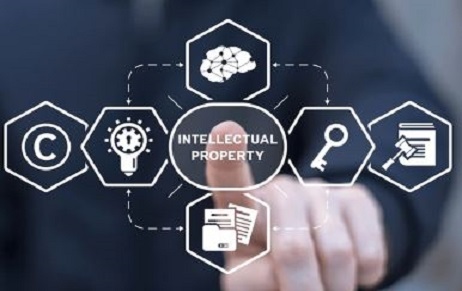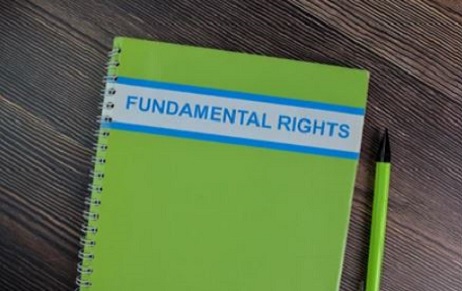Introduction The gaming industry has experienced exceptional growth in recent years, embracing as a crucial…
IP Waiver and Covid-19 Vaccines
Since 2019, coronavirus hit the whole world and it is now for 2 years, we are facing this unfortunate pandemic. As of 27 October 2021, there is a total of 24.43cr cases and 49.61lakh deaths worldwide with the USA on top followed by India and Brazil. The figures are alarming but the ground situation is way more harrowing. This pandemic has caused great distress to almost everyone in some way or other. During this pandemic, we have come across many things such as vaccines, IPR, NDMA, etc. from which we aren’t completely familiar before the pandemic. One of the issues which we are going to discuss further in this article is the relation and issue pertaining to IPR in the covid vaccine.
UNDERSTANDING IPR
In 1873, the foreign exhibitors refused to attend the ‘International Exhibition of Invention in Vienna’ due to the fear that their idea would be stolen and will be used commercially. This incident gives rise to the first international agreement on the protection of intellectual property in 1883 as the ‘Paris Convention for the Protection of Industrial Property.’ According to World Intellectual Property Organization (WIPO), ‘Intellectual Property (IP) refers to the creations of the mind, such as inventions; literary and artistic works; designs; and symbols, names, and images used in commerce’. ‘Intellectual property right’ is a right that is given to a person over the creation of their mind for a certain period. . It, in contemporary corporate times, has taken the role of one of the most important players in the field of trade. As its role extended to such stratospheric heights in the field of corporate, and thus in the economy, the need, therefore, arises for vouchsafing it with protection or security; for the security works as an incentive and motivation to the creator/ producer of such intellectual property to strive unlimitedly and infinitely for the creation of next intellectual property. What the ‘security’ is? It means no one, except the creator, is allowed to use, make or sell such intellectual property as is created by the creator. However, on the acceptance, given by the creator, for its use by the other person, that other person can use the secured intellectual property, but subject to terms and conditions of such acceptance. International Agreement which deals with Intellectual Property Rights is TRIPS (Trade-Related Aspect of Intellectual Property Rights). TRIPS is an agreement between all the member nations of the World Trade Organization (WTO). It (TRIPS) has established a minimum standard for regulation by a member nation of different forms of Intellectual Property. The Intellectual Property Rights that TRIPS covers are Trademark, Patent, Geographical Indication, Industrial Design, Copyright, Undisclosed information including trade secrets. Waiver of intellectual property rights on the covid vaccine is needed of the hour but it will have some repercussions also. Pharmaceutical companies that have invested a big amount in their R&D for vaccine development will get discouraged but in this time of pandemic lives of people should be prioritized and waiver should be granted. The covid vaccine is mostly concerned with the patent and trade secrets of IPR.
PATENT:
A patent is a right granted by the patent office to the inventor, who had applied for such a right, to prevent others from using his invention. Member nations are required, under Article 27 of the TRIPS agreement, to provide patent “for any inventions, whether product or processes, in all fields of technology, provided that they are new, involve an inventive step and are capable of industrial application……. and patent rights enjoyable without discrimination as to the place of invention, the field of technology and whether products are imported or locally produced.” However, under Article 27.3, it (TRIPS) gives discretion to the member nation to exclude invention, which comes under the rubric of “diagnostic, therapeutic and surgical method for the treatment of humans and animals,” from patentability.
Trade secrets mean a piece of information, which is not generally known— or not known to most of the people— in a particular trade field; thus, vouchsafing economic benefit to the inventor of such secret. Some examples of Trade secrets are formulas, processes, methods, techniques, patterns, programs, or a compilation of information that provides one’s business a competitive advantage over others. Though the definition of Trade secret according to the jurisdiction varies, there are three common factors to all jurisdictional definitions:
- A trade secret is unknown to the relevant portion of the public in that particular trade field.
- It is capable enough to provide some sort of economic benefit to the holder.
- It is reasonably possible to get its secrecy maintained.
Article 39 of the TRIPS agreement deals with the protection of undisclosed information. It says that “Member country shall protect undisclosed information…” in the course of ensuring effective protection against unfair competition. Under Article 39.3 it manifested: “Members when requiring, as a condition of approving the marketing of pharmaceutical or of agricultural chemical products which utilize new chemical entities, the submission of undisclosed test or other data, the origination of which involves a considerable effort, shall protect such data against unfair commercial use. In addition, Members shall protect such data against disclosure, except where necessary to protect the public, or unless steps are taken to ensure that the data are protected against unfair commercial use.” It also, as in the patent’s Article, clearly manifested the member nation’s discretionary power not to grant, for the purpose of protecting the public, such protection.
COVID VACCINE
During the pandemic, no one is safe until everyone is safe. There can be two ways to overcome this pandemic is either to have herd immunity or to give vaccination to all, the first way is definitely disastrous. So, it is very much clear that the way to overcome this pandemic is to provide vaccines to all. Vaccines are very important for the world’s healthcare, it (vaccine) apart from covid, saves millions of lives each year. Vaccine injects diluted/weakened form of an infectious agent – viruses, bacteria, and other microorganisms which cause that disease. It prepares our immune system to rapidly and effectively respond to that disease. There are different types of covid vaccines; most commonly are RNA, adenovirus, and inactivated virus vaccines.
Generally, vaccine development took many years to develop due to its long clinical process. The fastest vaccine (excluding covid vaccine) to be developed is in 4 years is for mumps in the 1690s. This is really surprising and also commendable that within a year we have developed a vaccine for coronavirus. We have developed not just one but tens of covid vaccines which depict the scientific development but then the question comes that if vaccines are developed then why the low and middle-income countries are not getting sufficient vaccines. It is true that manufacturing vaccine for the whole world in a short span of time is very difficult considering the resources but what can make manufacturing easier or faster is the waiver of intellectual property rights. We have seen that vaccines aren’t available as per demand in countries i.e., rich countries have vaccines more than what they need and low-middle income countries are facing vaccine shortage. Leaders of countries try to save their people first which is natural but they shouldn’t hoard vaccines and to give vaccines to low-middle income countries is not only humanitarian but also sensible as the virus knows no boundaries and no country is safe until every country is safe. Vaccines should be made available to each and every country. There are many inequalities in vaccines presence between rich and low-income countries as also said by Cyril Ramaphosa (South African president), “The rich countries of the world went out and acquired large doses of vaccines from the developers and manufacturers of these vaccines, and some countries have even gone beyond and acquired up to four times what their populations need. That was aimed at hoarding these vaccines and now this is being done to the exclusion of other countries in the world that most need this.” Every country should have vaccines irrespective of their income status. If rich countries are going to hoard vaccines, then also they aren’t safe because the virus may come with a new variant that cannot be protected by earlier vaccines. There are many initiatives by world organizations and individual countries such as covax, vaccine maître, and initiative by G-7. Covax which is led by GAVI is part of a global effort aimed at accelerating the development and manufacture of COVID-19 vaccines and guaranteeing fair and equitable access around the world. Vaccine maître is an initiative by India to provide vaccines to its neighbor and partner countries. G-7 countries in their meeting decided to donate one billion vaccines.
CONTEMPORARY ISSUE REGARDING IPR TO COVID VACCINES
To fade away this pandemic, the vaccine is the requirement, and thus, it is requisite to provide equitable access to Covid vaccines to nations all over the world. For this equitable access, manufacturing shall be at its exponential pace, thus ensuring the supply of vaccines to be at its pace as to make equitable accessibility of vaccines a reality. However, it could be very difficult given the intellectual property protection given to the developers of the vaccines.
TRIPS agreement, though countenance security to intellectual property, also supports the criteria of exempting those intellectual properties which are related to medical or pharmaceutical as has been contemplated in Articles 27.3 and 39.3 of TRIPS Agreement. As it is very clear that grant of a patent, under TRIPS Agreement, is required of member nations, however, under Article 27.3, member nations may exclude from patentability those subject matters which are “diagnostic, therapeutic and surgical method for the treatment of humans and animals.” Covid vaccines were granted, without giving any consideration to Article 27.3, the protection of the patent. Another intellectual property of which role is also important for considering an intellectual property to covid vaccines is Trade Secrets, authorization for the protection of which is given under Article 39 of TRIPS. However, its (Article 39’s) clause 3 countenances for not to authorize protection of Trade secrets whenever it seems that the creation is necessary for protecting the public. However, this also met with the same fate as Article27.3.
The vaccine inequity as a corollary of the grant of intellectual property rights (IPR) will defeat the collective resolve to contain this pandemic. Considering this reason India and South Africa had taken an initiative, requesting the waiver of IPR but for a limited period of time. Both nations got the support of forty-six Least Developed Countries, the USA, and other nations. UNICEF also cautioned that with this strict intellectual property rights for manufacturing covid vaccines and the current pace of vaccine manufacturing will simply be not enough to meet the demand. However, nothing in regard to these suggestions has been transpired as yet.
The statement “no one is safe until everyone is safe” is being undermined because of the inequitable accessibility of vaccines. Everyone’s life, even of those getting protected through jabs, will be at stake if this inequity, somewhat a corollary of vaccines connected with IPR security in this difficult time, is not actively dealt with.
WHY IPR IS REQUIRED
An incentive is required when a good thing is done. IPR is that incentive for the developers of the vaccines for covid. This incentive provides their creation protection from being used by any other, except with their acceptance for its uses; thereby providing the creator the monopoly over his creation. The economic benefit then becomes the result of such a monopoly. This incentive will encourage him to ahead with another intellectual creation.
This is probably the first time that with such anon the vaccine has been developed, and if the incentives were not provided for their intellectual efforts then, presupposing further pandemic, they will not take initiative to ahead with a solution, if not perfect then nearly perfect, of that pandemic.
For the sake of humanity, it is required to give not only consideration but also execution to Article 27.3 and Article 39.3, thereby ensuring an equitable supply of vaccines to countries. When this becomes reality, thereby also putting everyone’s safety into reality: this covid is constantly evolving one, with the travel from one person to another it excessively changes its characteristics, thereby, if not fully than to some extent rendering the vaccine ineffective, and ultimately making the vaccine fully ineffective. That is why India and South Africa were emphasizing the waiver, though for a limited period of time, of IPR for covid vaccines. If manufacturing companies get discouraged by waivers then they can be provided with some incentive by the government. Countries can also go ahead with compulsory licensing. Like in India, Section 92 of the Patents Act of 1970 is a special provision enabling the Central Government to issue compulsory licenses for the manufacture of patented drugs in a public health emergency. Section 100 of the Patents Act enables Central Government to use patented inventions for government purposes. ‘The SC of India had asked the government for invoking compulsory licensing for which government shows their disapproval claiming it to be counter-productive’. However, issuing compulsory licenses can prove to be very productive by helping other manufacturers to directly produce the vaccine which is developed and not to develop a new vaccine, this will increase manufacturing pace. The judge also mentioned that Bangladesh was producing a generic drug of Remdesivir, which was being exported to many countries.
During this deadly pandemic, there is no scope for commercial interest; saving as many lives as possible should be an interest to all.
Author: Rahul Charan – a student of National Law University (Gujarat), in case of any queries please contact/write back to us at IIPRD.



